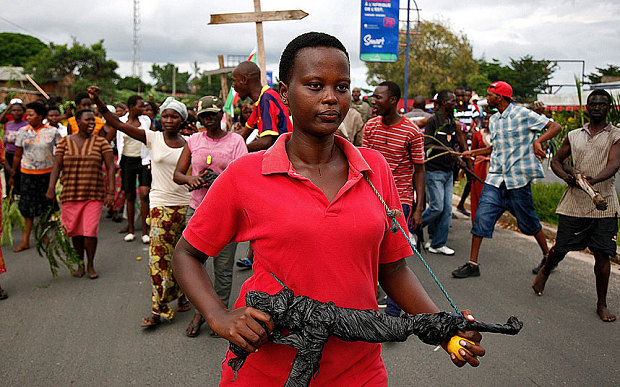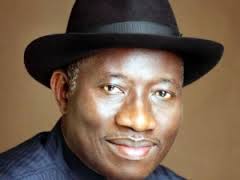Thousands of people poured on to the streets of Burundi’s capital Bujumbura on Wednesday after a senior military officer declared a coup against the country’s president following deadly clashes between police and protesters.
The announcement by Major General Godefroid Niyombare, a sacked former intelligence chief, was made in a press conference at a military barracks and carried on two private radio stations.
“President Pierre Nkurunziza is removed from office, the government is dissolved,” Maj Gen Niyombare said in the radio broadcast. “All people are asked to respect the lives and property of others.”

Burundian President Pierre Nkurunziza in Paris in 2014 (AFP/Getty)
The dramatic development came after more than two weeks of escalating protests against Mr Nkurunziza’s decision to run for a third term in forthcoming elections, which has resulted in at least 22 deaths.
They culminated on Wednesday morning in hundreds of people pushing through security cordons into the centre of town close to the presidential palace, prompting police to open fire with live ammunition.
Hours earlier, Mr Nkurunziza left the country for Tanzania where he was meeting with regional leaders for crisis talks. His office dismissed the coup attempt as a “joke”.

Demonstrators trying to march to the town centre flee as police disperse them with tear gas, in the Ngagara district of Bujumbura (AP)
“It is with regret that we have learned that a group from the armed forces mutinied this morning and declared an imaginary coup,” it said in a statement released late in the afternoon.
“The presidency informs national and international public opinion that this coup attempt has been foiled and that these people, who read the coup announcement on the radio, are being hunted by defence and security forces so that they can be brought to justice.”
Willy Nyamitwe, Mr Nkurunziza’s spokesman, told the BBC the head of state was on his way back from Tanzania, where regional leaders issued a communique condemning the military action. Ban Ki Moon, United Nations secretary general, called on all sides to exercise calm and restraint.

A masked protester walks during a protest against President Pierre Nkurunziza’s decision to run for a third term (Reuters)
Radio Publique Africa, a popular radio station which had been blocked by the government along with several social media sites and Whatsapp, came back on air and began broadcasting the coup message.
Among a litany of complaints against the president, Maj Gen Niyombare referred to the “sadistic” putting down of protests by his security forces, the “massive violation of human rights”, violent crime, damage to state property and to Burundi’s reputation abroad.
But was unclear as the afternoon progressed to what extent Gen Niyombare and his allies were in control, since his message had not been broadcast on state television. In a bid to prevent the president’s return, he ordered the country’s borders and airport be closed. But the presidential palace and the official residence were also still being guarded by soldiers under orders from Mr Nkurunziza.
In Bujumbura, blue-uniformed police who until recently had been the predominant force on the streets were said to have largely disappeared, while soldiers were seen giving the thumbs up sign to people who sang, danced, clapped and waved tree branches.
“It’s an unforgettable day, it’s the first time that the wishes of the people have been respected here in Burundi,” one protester said.
Reports suggested that a prison which had been housing some of the hundreds of demonstrators reportedly arrested during recent weeks had been broken into and some of its occupants freed.

Burundian refugees gather on the shores of Lake Tanganyika in Tanzania on Tuesday (Reuters)
Burundi, a former Belgian colony, is one of the world’s poorest nations and is struggling to emerge from a lengthy civil war characterised by ethnic violence that resulted in genocide in its larger neighbour Rwanda and saw 300,000 people killed.
The civil war ended in 2005 with fresh elections which saw the main Hutu rebel group take charge, which in turn picked President Nkurunziza to be at its helm.
A source in the international community in Bujumbura told The Telegraph that a putsch was “among” the scenarios they had previously foreseen but added, “it was not the most likely”.
It was unclear whether the coup would be successful, the source added.
“There are divisions in the army. We don’t know if Niyombare will be supported.”














